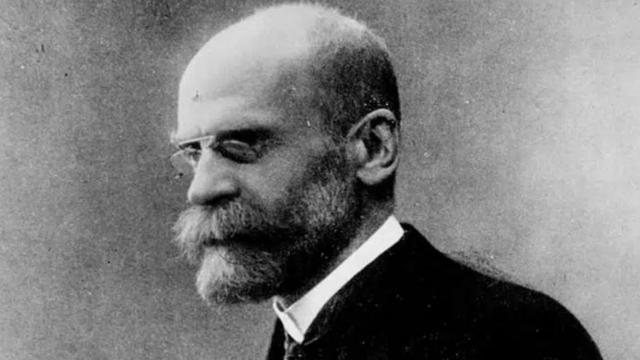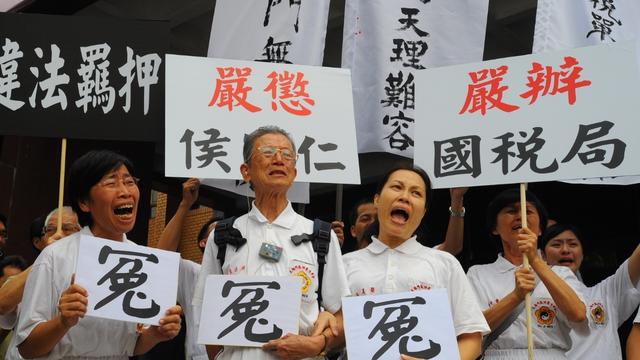One of the fathers of sociology presented solidarity as the necessary cement of societies. Tai Ji Men tells us it should be based on conscience.
*A paper presented at the hybrid seminar “Global Solidarity with Tai Ji Men: 26th Anniversary of the Raid Which Began the Tai Ji Men Case,” co-organized on December 19, 2022, on the eve of International Human Solidarity Day, in Pasadena, California, by CESNUR, Human Rights Without Frontiers, the Tai Ji Men Qigong Academy, the Association of World Citizens, Action Alliance to Redress 1219, the website TaiJiMenCase.org, and FOREF (Forum for Religious Freedom Europe).

December 20 is International Human Solidarity Day. For a sociologist, 1893 is the year when solidarity became a key notion of sociology. In that year, one of the founding fathers of the modern science of sociology, Émile Durkheim, published his doctoral dissertation, whose title was “De la division du travail social” (The Division of Labour in Society).
Durkheim explained that solidarity is the cement consolidating every human society. Without solidarity, there would be no society. Should solidarity cease, society would collapse. This elicited the following question, what is solidarity. Durkheim defined it as the spider web made of the invisible links that connect an individual in a society to many others around him, who are in turn connected with others, so that in the end the web has no interruptions or holes.
Where do these links come from? Here, Durkheim introduced his famous distinction between two different kinds of solidarity. He called them mechanic solidarity and organic solidarity.
For Durkheim, mechanic solidarity is based on common values and similar behaviors, which are often created by religion. The premodern societies survived as societies because of mechanic solidarity. Most of their citizens shared the same values and ways of living.
In modern societies, however, social and religious pluralism destroyed mechanic solidarity. Yet, modern societies did not collapse. They survived and became even more solid than ancient societies because they are based on the principle of division of labor. This is more than the economic principle that Durkheim had learned from pro-capitalism economist Adam Smith and anti-capitalist philosopher Karl Marx.
In a society there are different economic functions but also different social and cultural functions, and in a modern society different groups, which may have opposite ideas, understand they should cooperate and accept that their differences should be regulated by the state and the laws. This is what Durkheim called organic solidarity, which for him is a superior and more democratic model than mechanic solidarity.

Durkheim’s great work quickly found its critics. If we read the book, we may see that he had anticipated some criticism himself. He understood that some may not accept the social differentiation of the modern society and perceive it as oppression, generating “anomie” (another key concept of Durkheim), which may lead individuals to suicide and societies to unrest.
Durkheim also never said that with the advent of organic solidarity, mechanic solidarity will totally disappear. He agreed that mechanic solidarity, while not uniting the majority in a modern society, will continue to unite large groups, for example of believers in the same religion. And he also hoped that public education can create new shared national narratives and new forms of mechanic solidarity, which would balance the problematic features of organic solidarity and reduce anomie.
There is much that is obsolete in Durkheim’s analysis, but also a truth he glimpsed, i.e. that a portion of what he called mechanic solidarity should survive even in modern societies dominated by organic solidarity to avoid major disasters. This means that, for all their differences, societies that have lost the premodern coherence and are highly pluralistic, should find some common narratives and values if they want to survive.
The main intuition of Dr. Hong Tao-Tze, the Zhang-men-ren of Tai Ji Men, is that the common value that can create solidarity in a highly pluralistic world and in pluralistic societies is conscience. We may have different religions and political ideas but, as human beings, we all share the inner compass of conscience.
Conscience does not only lead us to behave as good citizens of our countries and good world citizens. It also fuels our sense of justice, and inclines us to expose corruption, which is a plague in modern societies where corrupt bureaucrats have learned how to use or misuse the division of labor to their own advantage.
Dr. Hong’s teachings about conscience and against corruption have always been popular with many, but have also been perceived as a threat by corrupt bureaucrats and authoritarian politicians. Beyond the contingent political circumstances of 1996, this is why on that year, on December 19, the persecution of Tai Ji Men and the Tai Ji Men case started.

After twenty-six years, the Tai Ji Men case has not been solved. We have repeated for several years that it is not purely a legal case or a tax case, it is a case of freedom of religion or belief.
Perhaps, on this 26th anniversary, the time has come to say that it is not even a case of religious liberty only. It is a “case of conscience,” not according to the common English meaning of this expression, indicating a moral dilemma that is difficult to solve.
The Tai Ji Men case is a “case of conscience” in the literal sense of the words. It is a case where a spiritual master and his disciples who proclaim that conscience is the key to solidarity and thus to social harmony and peace are persecuted by those who are afraid that affirming the priority of conscience would lead to expose corruption, and demand accountability for corrupt bureaucrats.
In Taiwan, thus, proclaiming human solidarity cannot be separated from a call to solve the Tai Ji Men case. This is the message of the anniversary of the events of December 19, 1996, and of the International Human Solidarity Day.
Source: Bitter Winter

